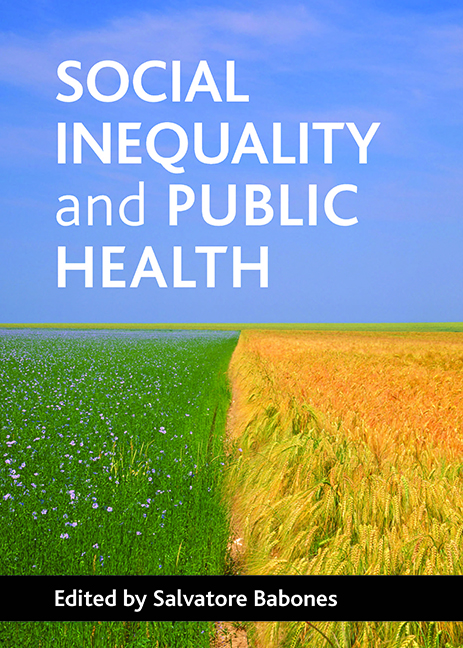Book contents
- Frontmatter
- Contents
- List of figures, tables, maps and boxes
- Preface
- Notes on contributors
- one Introduction
- Pathway 1 Differences in individual health behaviours
- Pathway 2 Group advantage and disadvantage
- Pathway 3 Psychosocial factors in individual health
- Pathway 4 Healthy and unhealthy societies
- Conclusions Public understanding of the new public health
- Index
eight - Health inequalities and the role of psychosocial work factors: the Whitehall II Study
Published online by Cambridge University Press: 22 January 2022
- Frontmatter
- Contents
- List of figures, tables, maps and boxes
- Preface
- Notes on contributors
- one Introduction
- Pathway 1 Differences in individual health behaviours
- Pathway 2 Group advantage and disadvantage
- Pathway 3 Psychosocial factors in individual health
- Pathway 4 Healthy and unhealthy societies
- Conclusions Public understanding of the new public health
- Index
Summary
Introduction
Despite the improvements in average income, life continues to be a struggle for many people. Although Marx has not proved to be the inspiration for vibrant social development, his concept of alienation resonates today. As social commentator Terry Eagleton has observed, alienation is embedded in the post-soviet, market-driven world (Eagleton, 2003). Culture and values are now important commodities, not so much in the marketplace, as the very fabric of the marketplace. Without wealth and money it is impossible to participate in the range of activities that the mass media constantly reflect to us: prestige is all too present in our consciousness.
The experience of ‘stress’ is in some ways a clear demand for these social values to be overturned. Health has improved – but social inequalities in health are growing: on the one hand, shell suits, trainers and unemployment in Workington in Cumbria (North West England) where the steel mill is about to close after 134 years of production, on the other, Armani, Mercedes and five-figure bonuses in the wealthy suburb of Richmond, London. Along with these extremes of wealth, there is a four-year life expectancy gap and a 16-year difference in healthy life expectancy (Bajekal, 2005). So who is most likely to suffer from stress? In my example, is it the former or the latter? Of course, it is the former, echoing the concept of alienation: a feeling, as New Labour politicians used to put it, that ‘I am not a stakeholder’.
Psychoanalysts recognise that an inability to suppress anxiety and antagonism can destabilise close relationships. Such dynamics can be considered to contribute to racism, community violence and other types of dysfunctional behaviour, which often emerge in deprived rather than wealthy communities. These are the manifestations of the time-honoured struggle for resources, and their psychological consequences.
For the large proportion of the population who do not lack the basic, material requirements for living, a different set of problems and preoccupations exist.
Relative deprivation and health
Most of us have never known absolute poverty, yet constant well-being remains elusive. Richard Layard (2005) and Daniel Kahneman (Kahneman et al, 2003) have studied the link between economic trends and the emotional state of the nations.
- Type
- Chapter
- Information
- Social Inequality and Public Health , pp. 115 - 130Publisher: Bristol University PressPrint publication year: 2009



